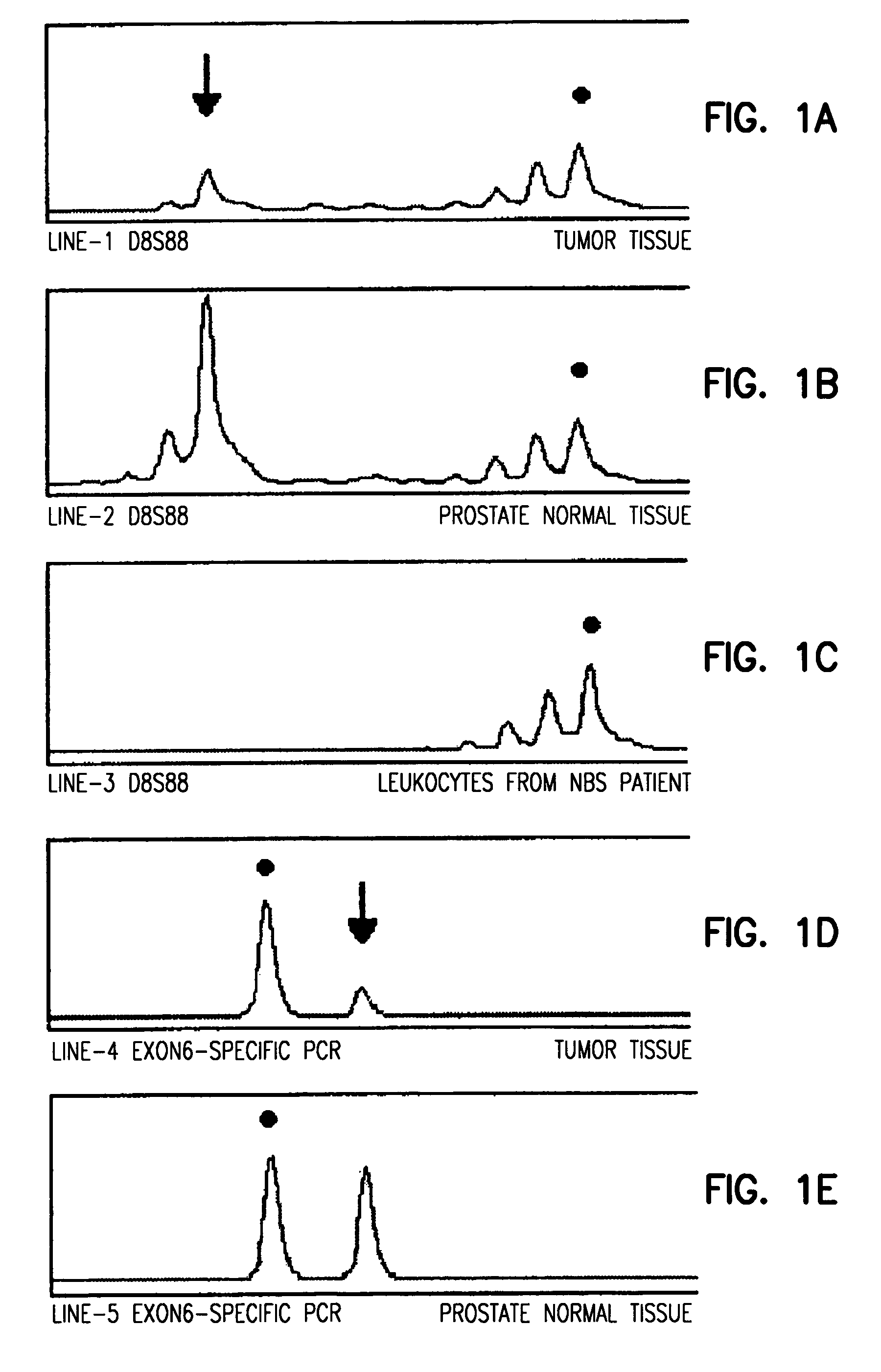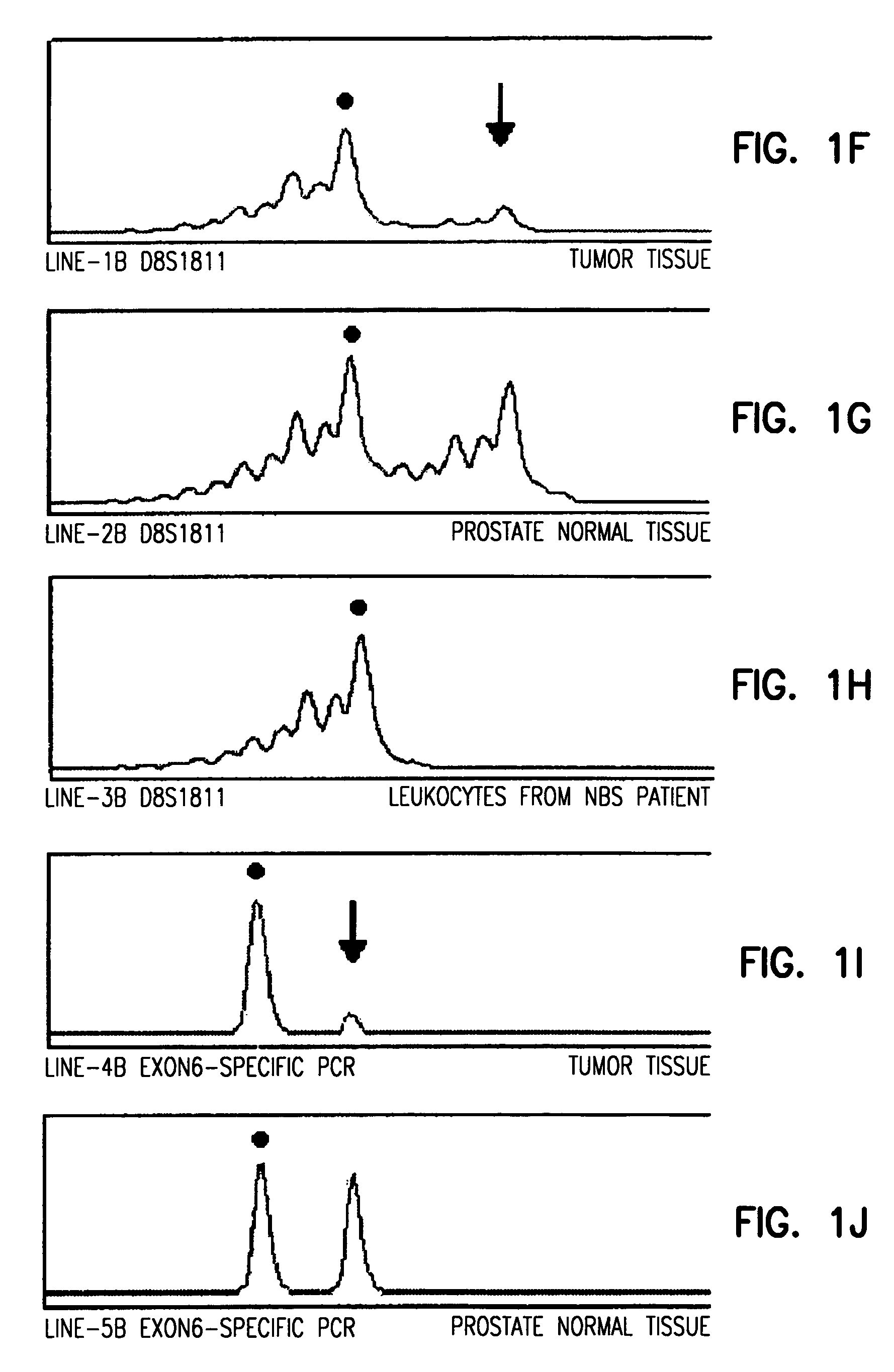Determining a predisposition to cancer
a predisposition and cancer technology, applied in the field of determining a predisposition to cancer, can solve the problems of no major prostate susceptibility genes so far identified, increased risk of breast cancer at some point in their lives, and morbidity and mortality in men, so as to increase the susceptibility to cancer
- Summary
- Abstract
- Description
- Claims
- Application Information
AI Technical Summary
Benefits of technology
Problems solved by technology
Method used
Image
Examples
example 1
[0034]The correlation between a germline alteration in the sequence of the NBS1 gene sequence and inherited predisposition to prostate cancer and breast cancer on example of analysis of 657 del5 founder mutation in the NBS1 gene was calculated.
Patients
[0035]A. The Association Between 657del5 and Prostate Cancer
[0036]Cases suspected of prostate cancer were admitted to Clinics of Urology in Szczecin. Criteria for suspicion of prostate cancer were elevated PSA level above 4.0 ng / ml or abnormal findings in per recum examination. Prostate cancer was diagnosed in the Clinics on the basis of USG-guided DRECUT biopsy performed in the suspected cases. Biopsy tissues, stained using standard procedures, were evaluated by pathologists in Department of Genetics and Pathology in Szczecin, and final diagnosis was confirmed.
[0037]All 359 men diagnosed with prostate cancer at the University Hospital in Szczecin, Poland between 1999 and 2002 were invited to participate in this study. Of these, 340 (9...
example 2
Loss of Heterozygosity Analysis (LOH) in Prostate and Breast Cancers
[0072]To analyze if NBS1 wild type allele is lost in prostate cancer and / or breast cancer, LOH analysis in microdissected tumors from NBS1 mutation carriers was carried out on 9 prostate cancer and 5 breast cancer tumors. LOH was carried out using markers adjacent to NBS1 gene: D8S88, D8S1811. Fluorescently labeled NBS1 exon6-specific primers were used (Cybulski et al., 2004).
[0073]Microdissection and DNA Isolation
[0074]Five micron sections of formalin-fixed, paraffin embedded tissues were cut onto slides. From each patient, tissues were sectioned onto 6 slides. One was hematoxylin / eosin stained. The remaining were used for microdissection. Sections were deparaffinized in two changes of xylene for 5 minutes. Sections were hydrated through a series of graded alcohols (in 96% ethanol (2-times), 70% ethanol and dH2O in each for 5 minutes). The slides were then stained in hematoxilin. Using a light microscope, the homog...
PUM
| Property | Measurement | Unit |
|---|---|---|
| Biological properties | aaaaa | aaaaa |
Abstract
Description
Claims
Application Information
 Login to View More
Login to View More - R&D
- Intellectual Property
- Life Sciences
- Materials
- Tech Scout
- Unparalleled Data Quality
- Higher Quality Content
- 60% Fewer Hallucinations
Browse by: Latest US Patents, China's latest patents, Technical Efficacy Thesaurus, Application Domain, Technology Topic, Popular Technical Reports.
© 2025 PatSnap. All rights reserved.Legal|Privacy policy|Modern Slavery Act Transparency Statement|Sitemap|About US| Contact US: help@patsnap.com



